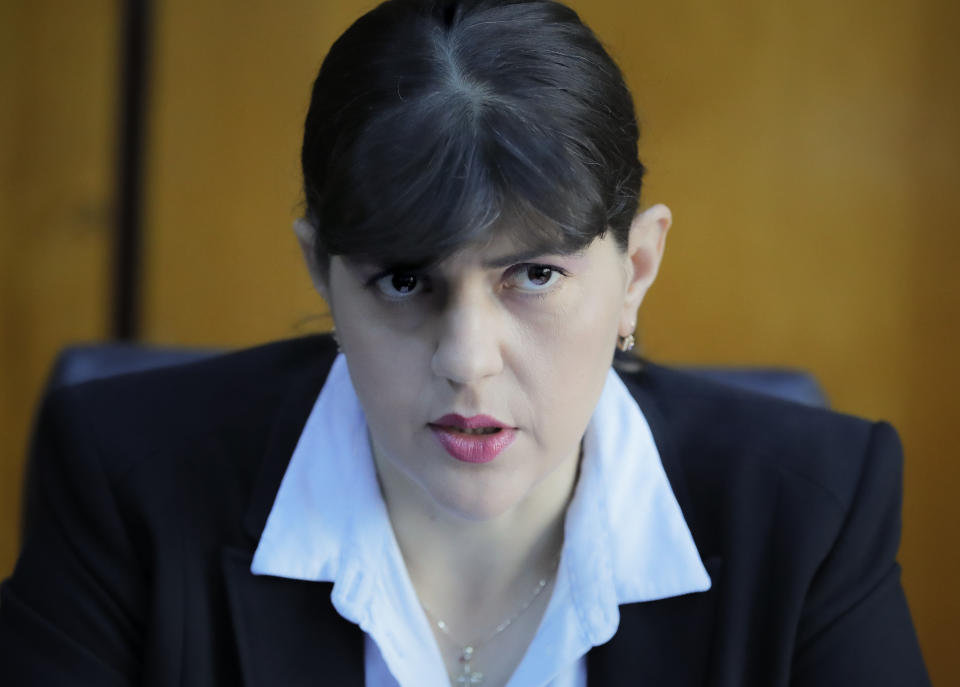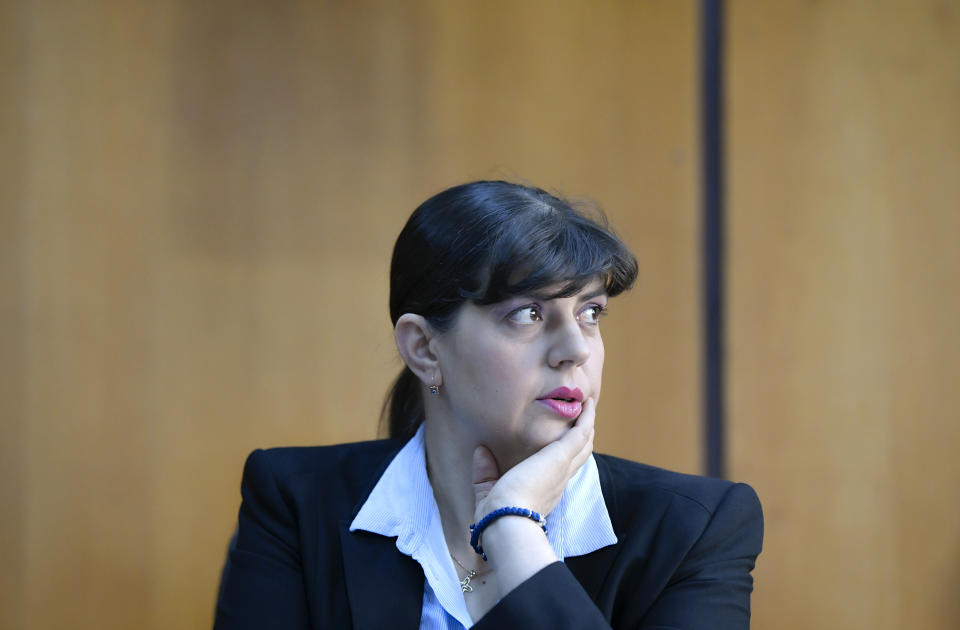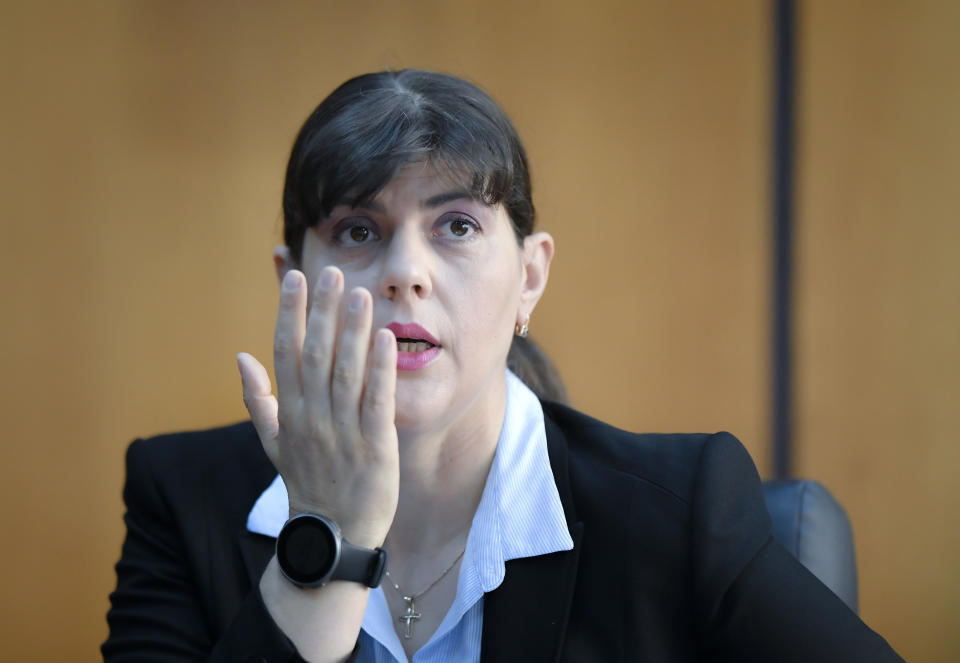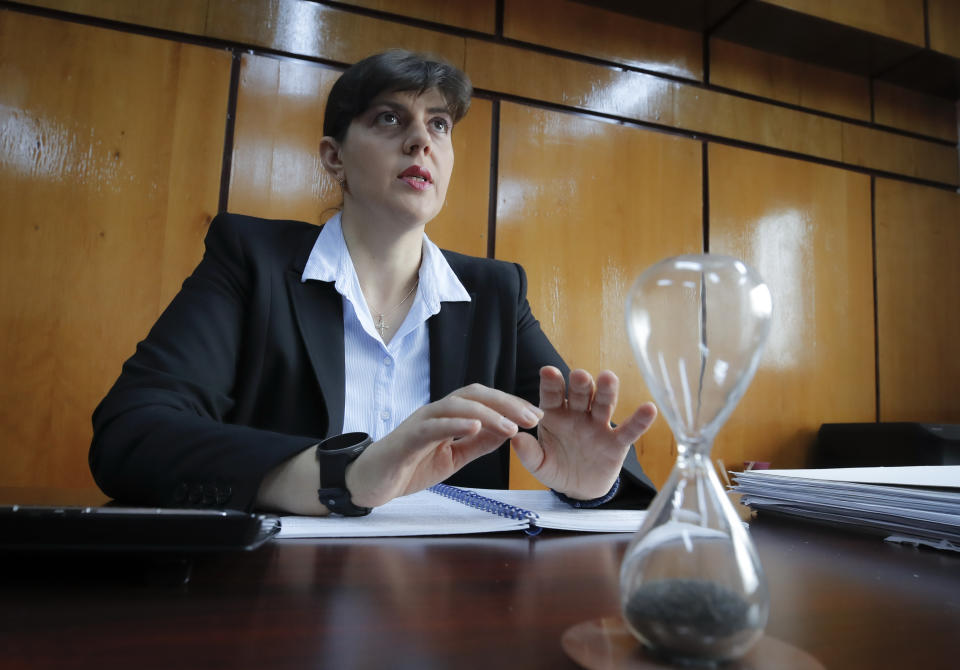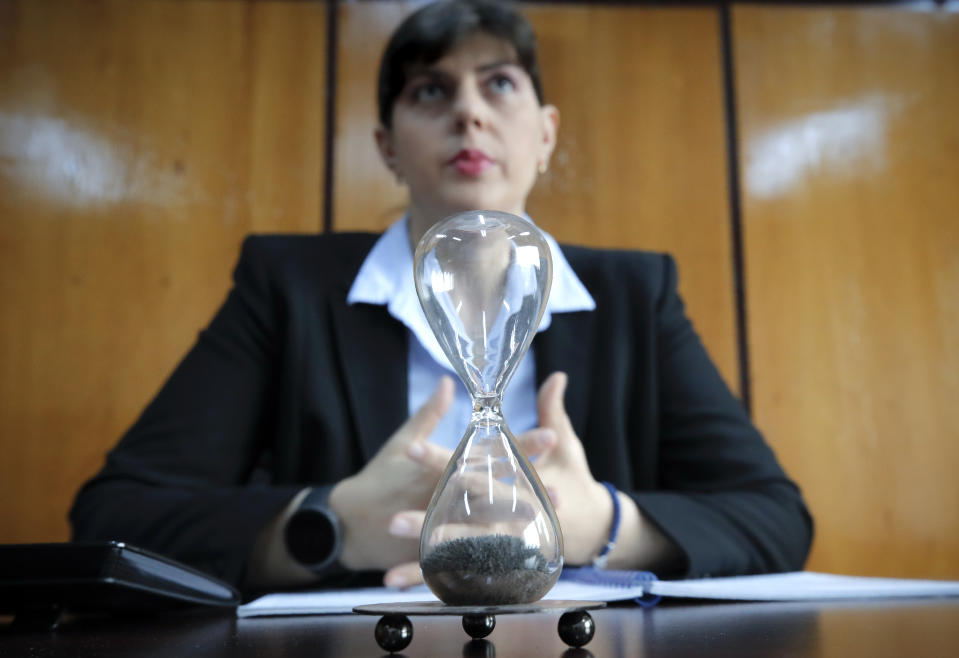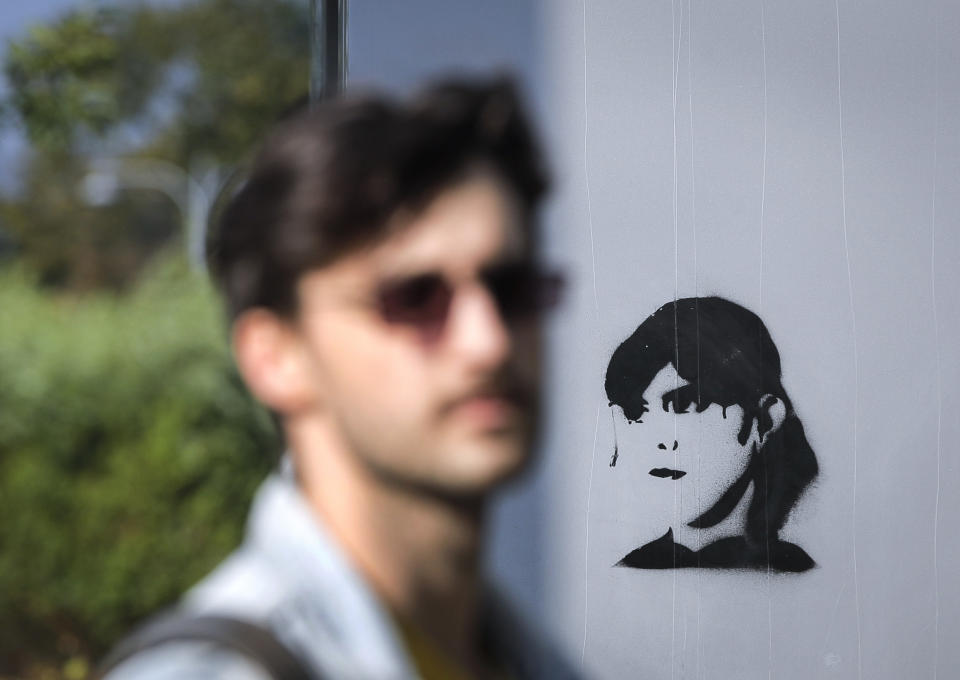EU's Chief Prosecutor Kovesi vows not to bend under pressure
BUCHAREST, Romania (AP) — For Romania's Laura Codruta Kovesi, opposition to her successful candidacy to become the European Union's first chief prosecutor came from a familiar source — her own country's government.
Kovesi spent five years as the head of the Romanian Anticorruption Directorate — known as the DNA — achieving remarkable results. Those indicted included 14 Cabinet members, 53 lawmakers and a member of the European Parliament.
Still, she was removed by the governing Social Democrats in July 2018, an act many in Romania believe was political retaliation for her department's successes.
With Romanian Prime Minister Viorica Dancila and others openly advocating against her, Kovesi called her EU appointment a vote of confidence for all prosecutors and judges in her country.
"I think it's an appreciation for how our justice system fought against corruption, but, more importantly, an appreciation of all Romanians who supported the rule of law and European values in the last couple of years," Kovesi said in an interview with The Associated Press.
Kovesi, 46, became Romania's youngest Prosecutor General in 2006 and served for six years before her stint at the DNA. Now, she will direct the European Public Prosecutor's Office — or EPPO — tasked with investigating fraud connected to the use of EU funds and other financial crimes. The Luxembourg-based office is expected to begin operations late next year.
"There are talks to extend the scope of the EPPO to terrorism as well, but for now financial crime is our goal," Kovesi explained.
A report released in January by the European Court of Auditors revealed that the EU lost 9 billion euros ($9.88 billion) between 2002 and 2017 to fraud, of which only 2.6 billion euros were recovered based on investigations conducted by OLAF, the European Anti-Fraud Office.
So far, 22 of the 28 EU member states have decided to participate in EPPO, with Sweden also thinking about joining the office. The agency will be the bloc's first institution for prosecutors to achieve a consolidated approach across member states in fighting fraud committed with EU funds.
"I think all European states realized that this is Europe-wide phenomena — the illegal use of European funds — and that they need a unified approach" to investigate, Kovesi said.
Her reputation and achievements as head of the Romania's anti-corruption office were welcomed in Western Europe, but Hungary and Poland, for instance, are not taking part in EU Prosecutor's Office.
Romania did sign on, but its government did everything it could to prevent Kovesi from getting the job. Dancila, the prime minister even instructed Romania's EU ambassador to vote against Kovesi.
"The ultimate consensus over my candidacy, I think, is a sign for our justice system," Kovesi said. "If you do your job in a professional manner, you will succeed."
Before Dancila, former Social Democratic strongman Liviu Dragnea was the driving force behind the campaign against Kovesi. Dragnea, who was not allowed to become prime minister due to a vote-rigging conviction, and his parliamentary majority changed laws and tried to undermine Romania's judicial independence. His actions were widely criticized by the EU. He went to jail in May to serve a separate corruption sentence.
Kovesi wasn't even wholeheartedly endorsed by former President Traian Basescu, who had appointed her to lead the DNA in 2013. Basescu claimed Kovesi had done "a lot of harm" to Romania's judicial system — comments that came after the DNA investigated his brother and sent him to jail.
Massive anti-corruption protests have become common in Romania. Kovesi's image and her LCK initials on posters and T-shirts have turned into a symbol of the country's battle against graft. President Klaus Iohannis and Romania's opposition parties have taken credit for backing Kovesi for her new EU role.
Despite her popularity, Kovesi vehemently rejected running for office in Romania, saying she had been asked hundreds of times about it.
"Every time I said 'No! No! No!' Nobody believed me," Kovesi said. "I will be very clear: I want to remain in the justice system."
Still, since her ouster the DNA hasn't been making headlines like it used to, so Europe's gain may be Romania's loss.
Kovesi declined to comment directly on the recent performance of Romania's anticorruption prosecutors but noted the challenges faced by prosecutors seeking to clean up politics.
"The last two years have brought on a massive and very aggressive attack against the judicial system," Kovesi said. "Laws were amended, prosecutors and judges were attacked and humiliated, there was a true campaign of disciplinary actions against personnel. You can very well imagine that this sort of things could influence the efficiency of a judicial body."
Kovesi herself was a target of intimidation and pressure attempts. In 2016, former Mossad agents working for the private security contractor Black Cube were arrested and convicted of hacking the communications of people close to her.
"If you are afraid or hesitant as a prosecutor, you need to change jobs," Kovesi said. "Those who commit crimes are not exactly the nicest people, so you have to expect some blowback."
"No matter what the pressure, I will do my job," Kovesi vowed.
